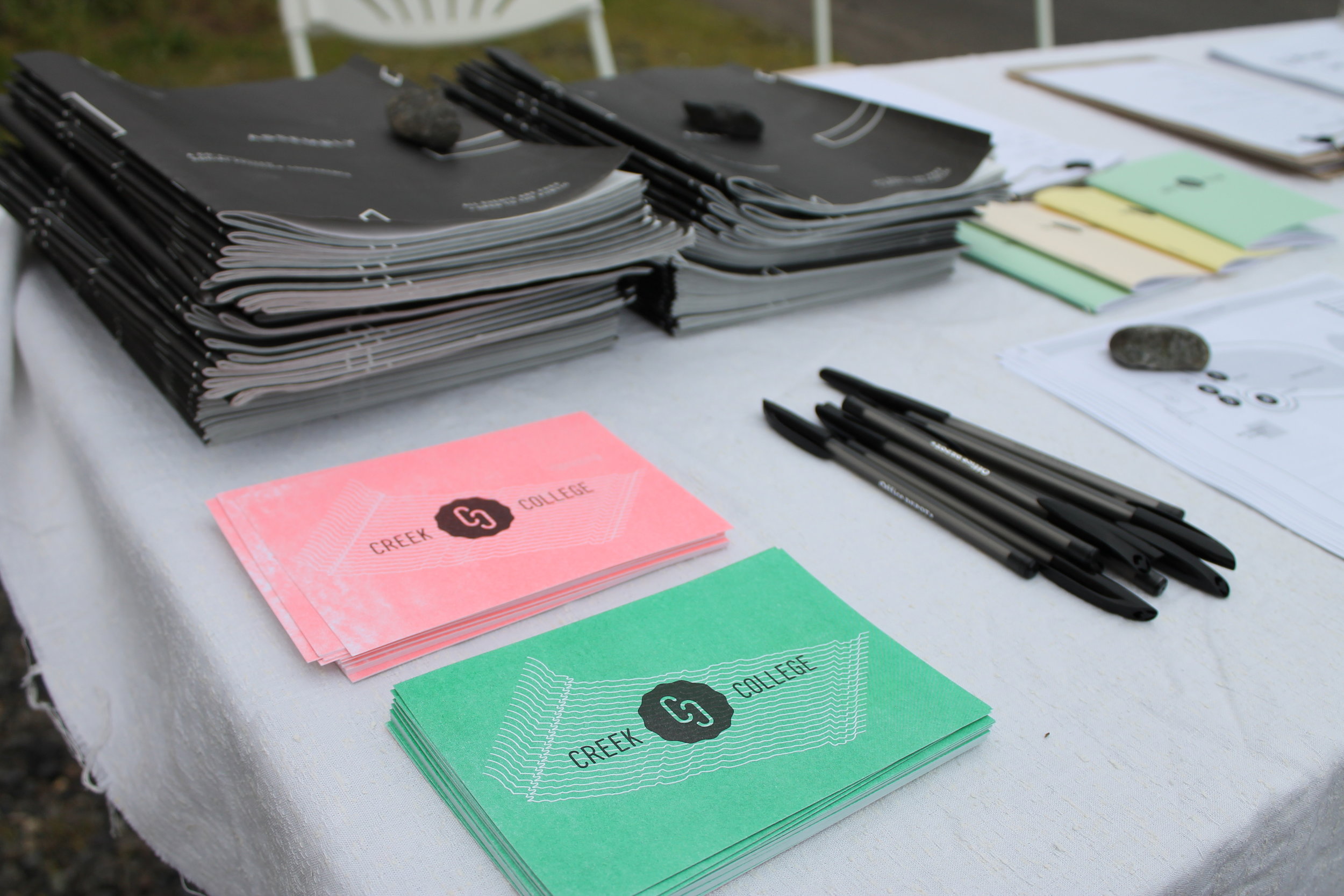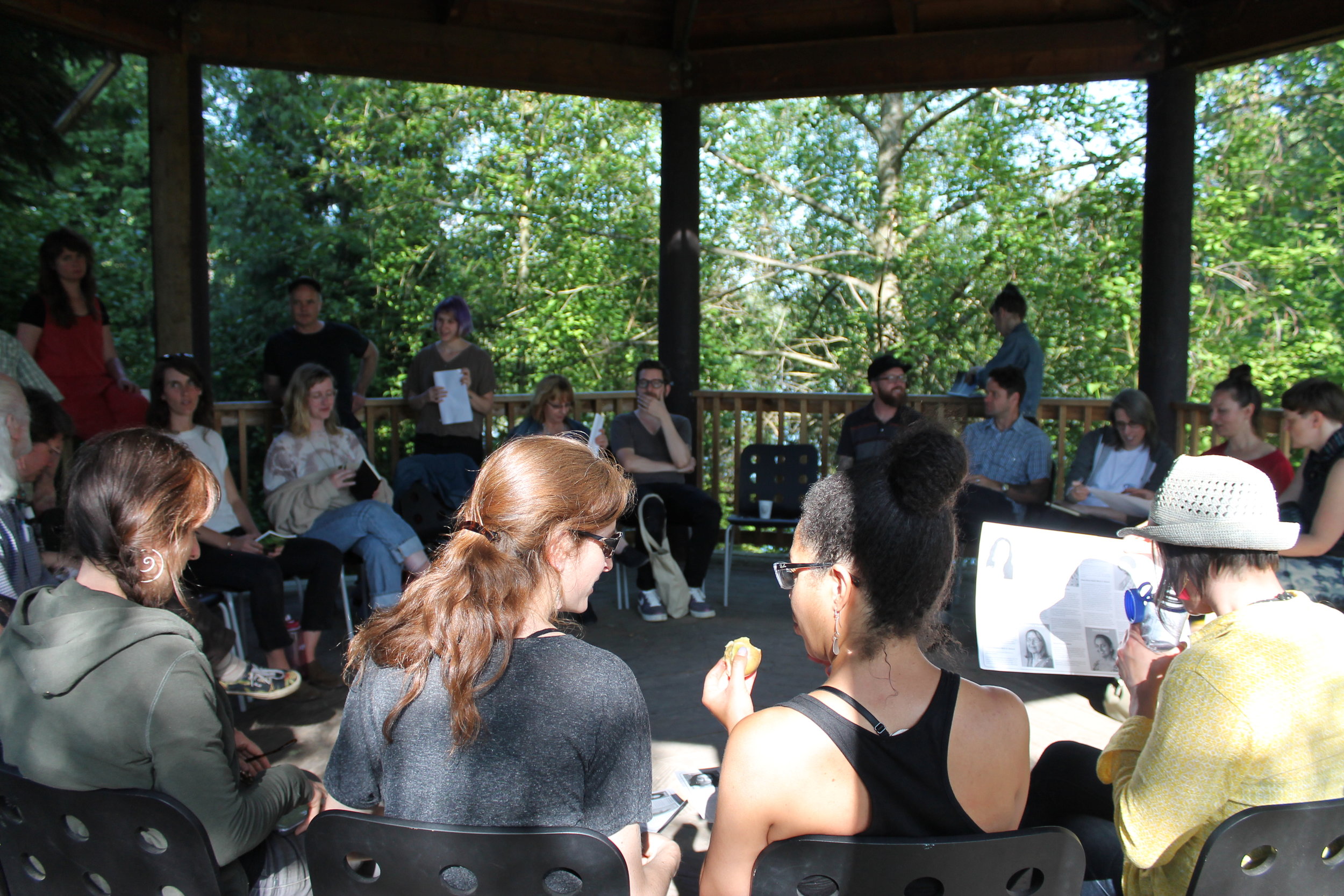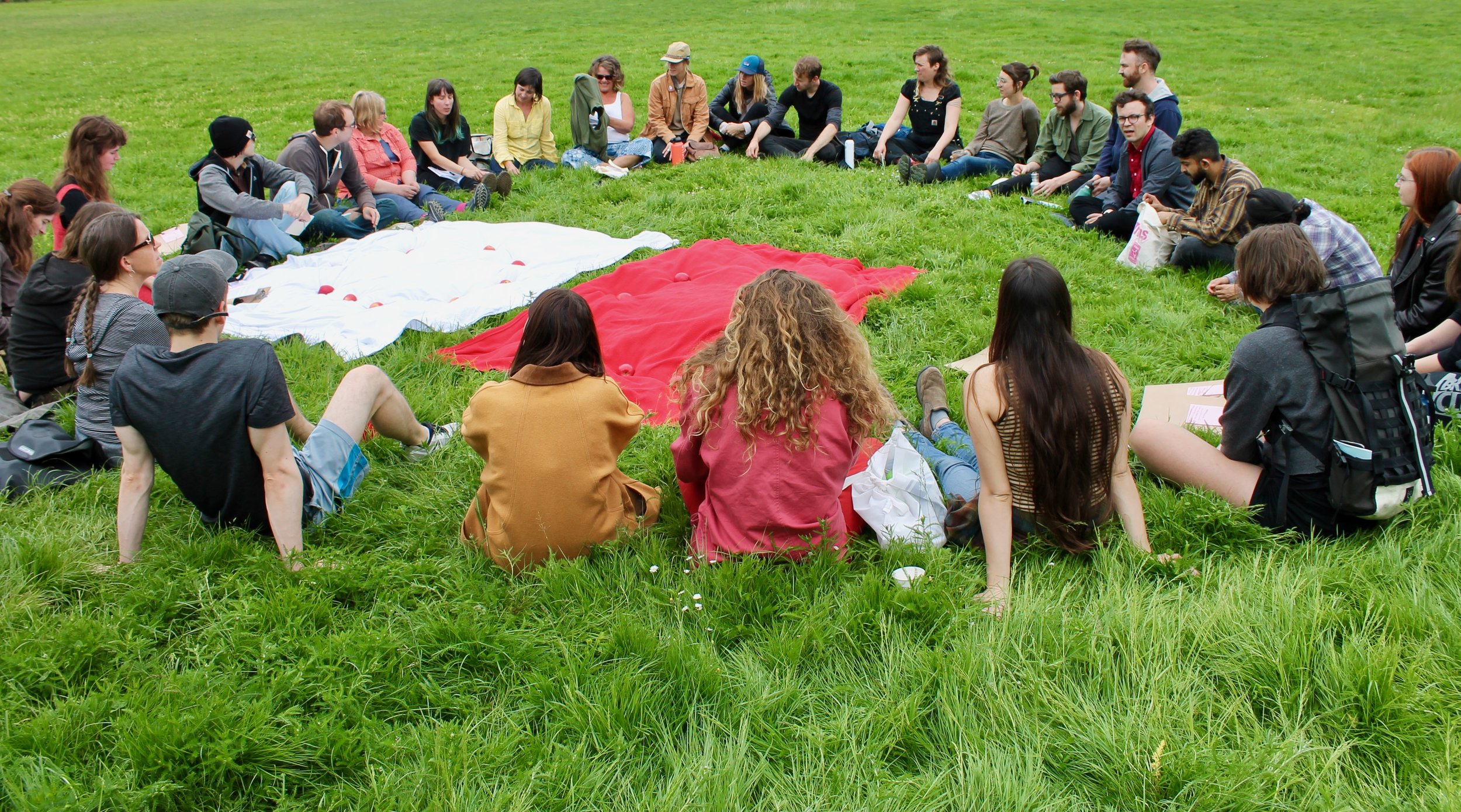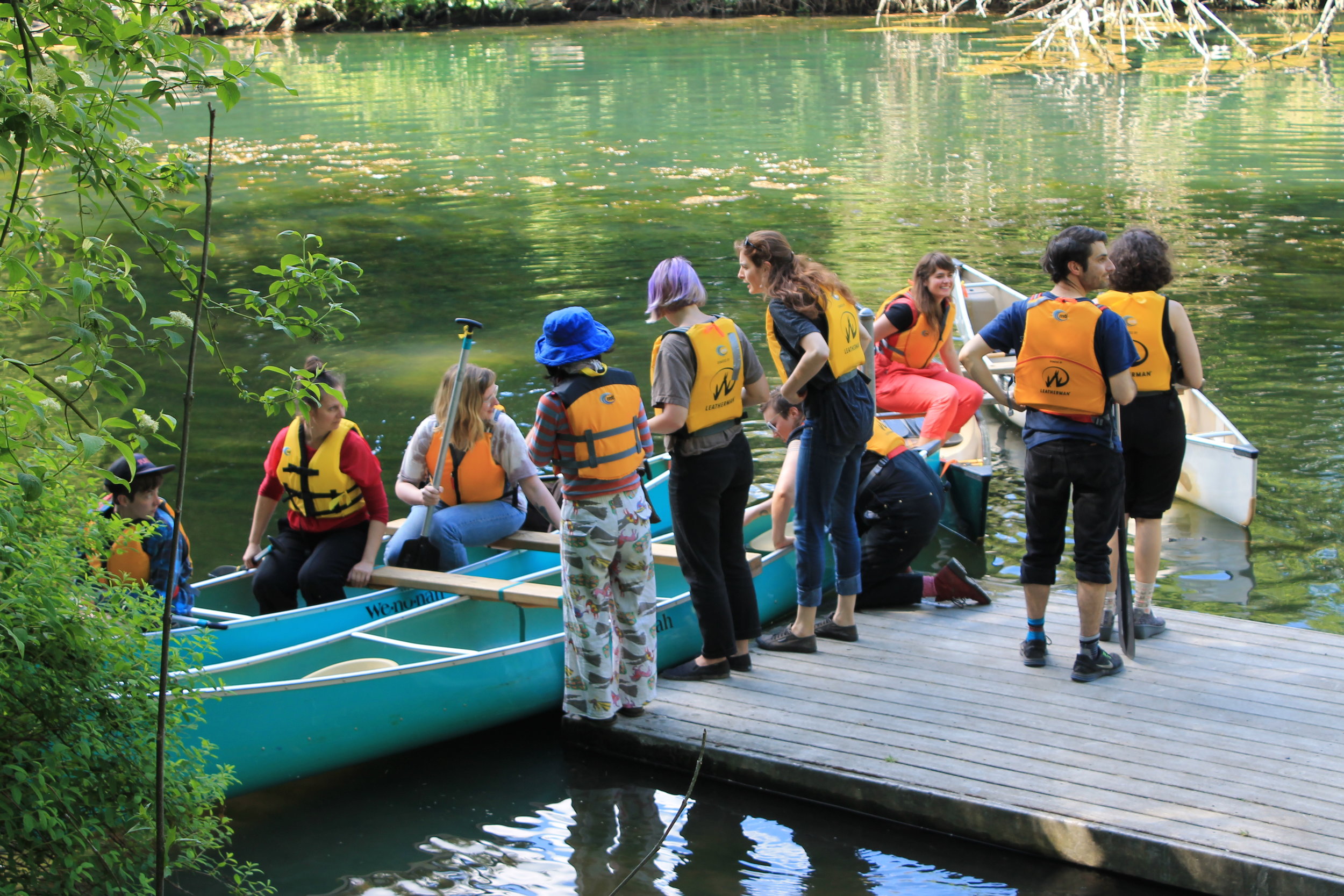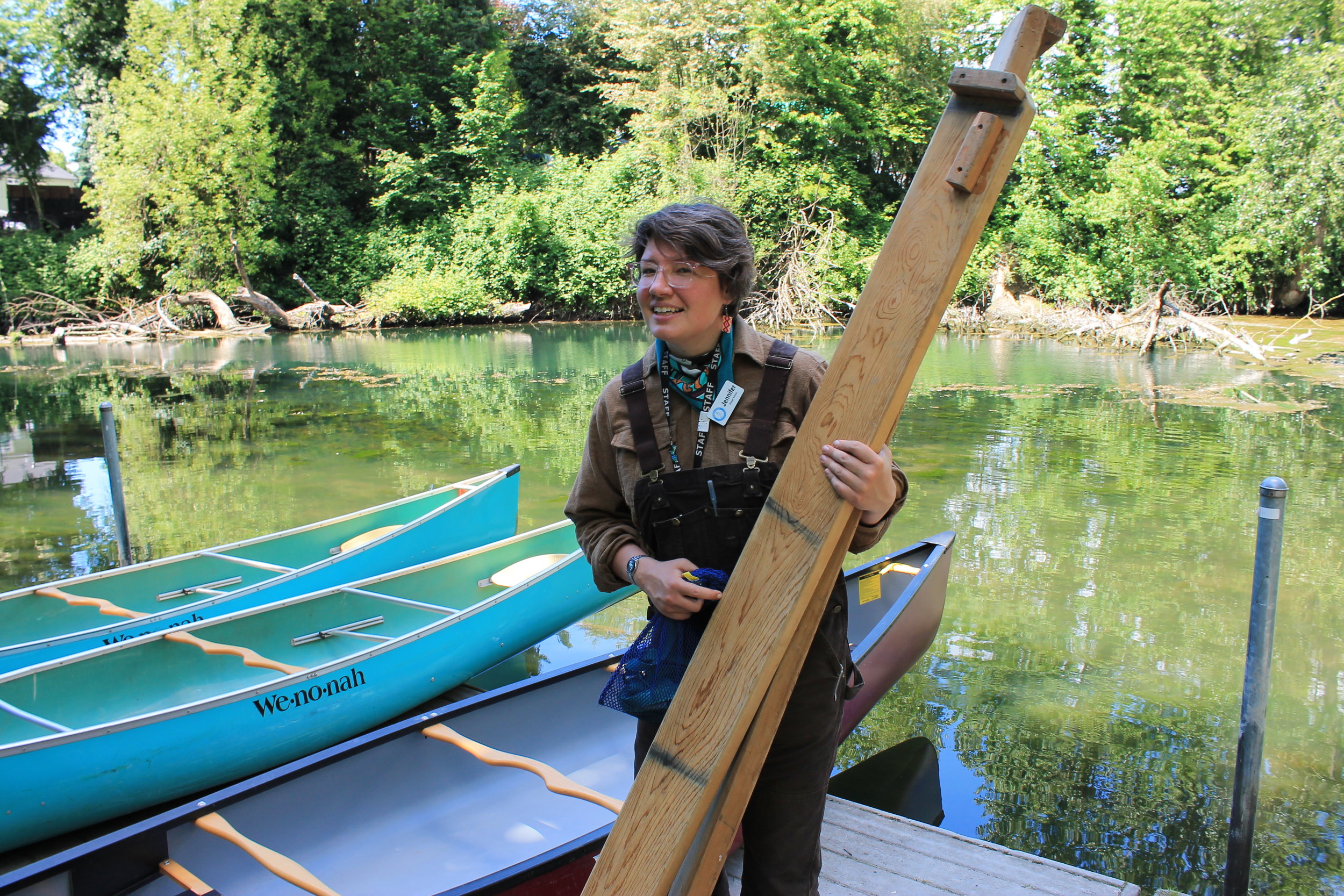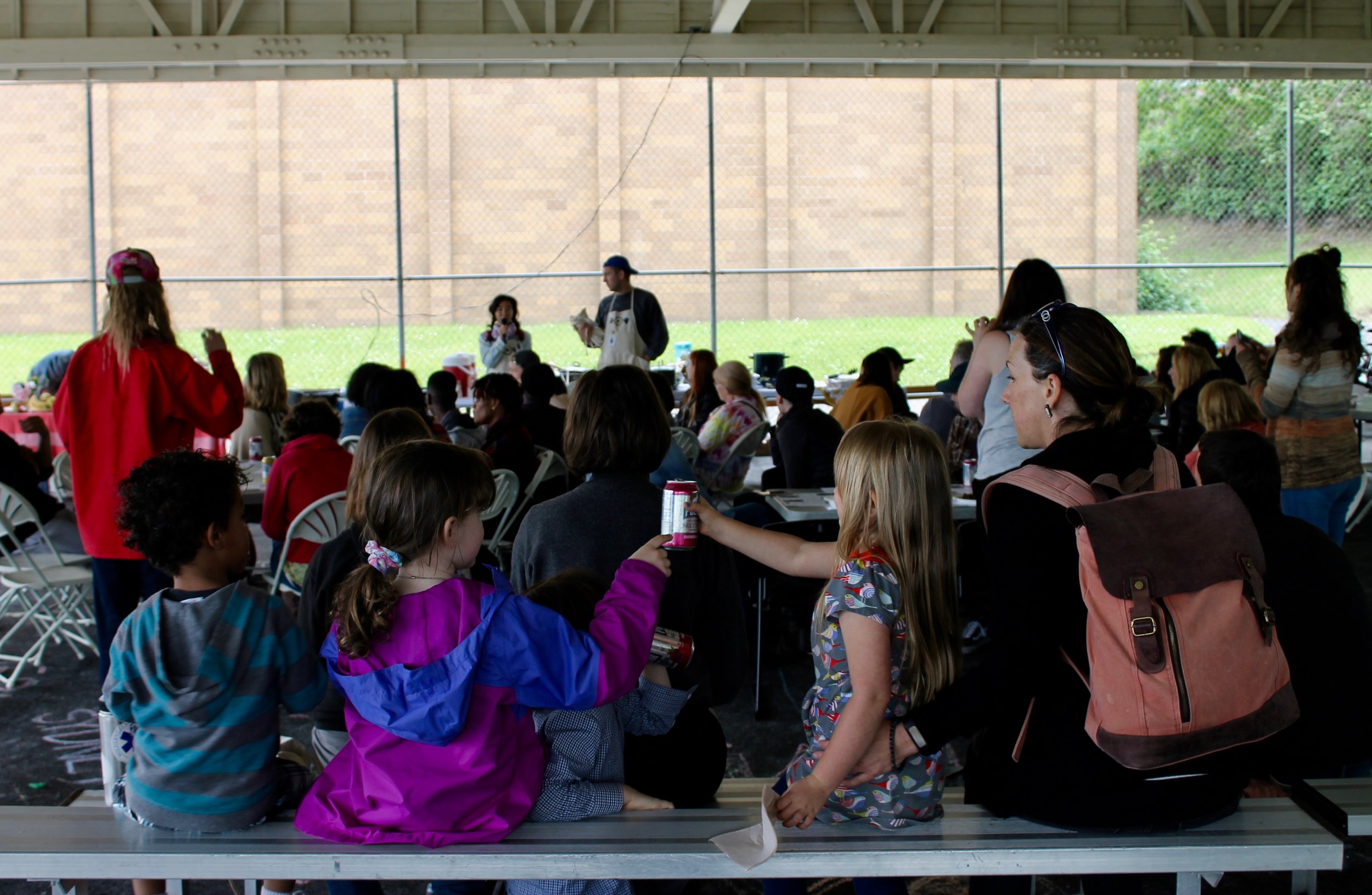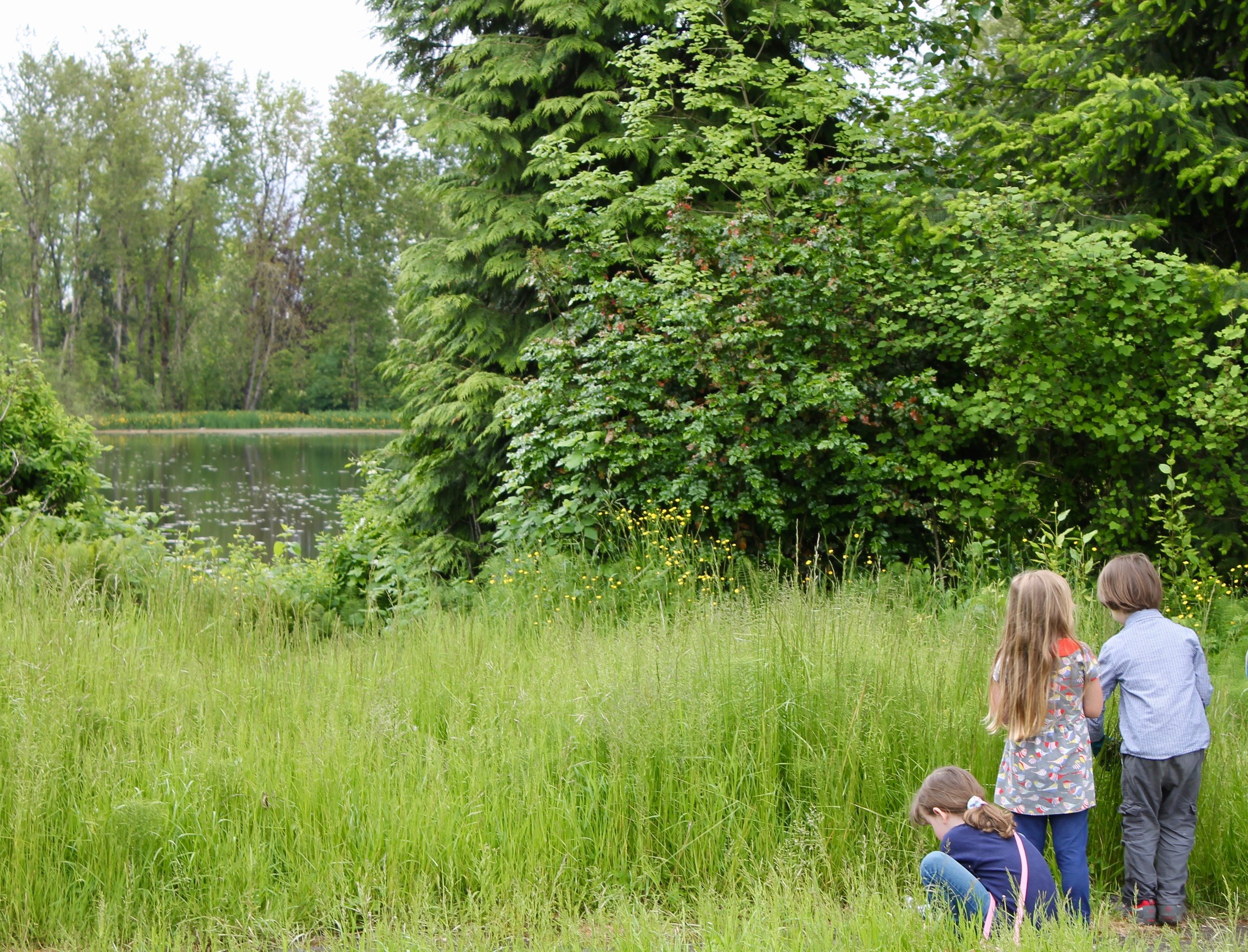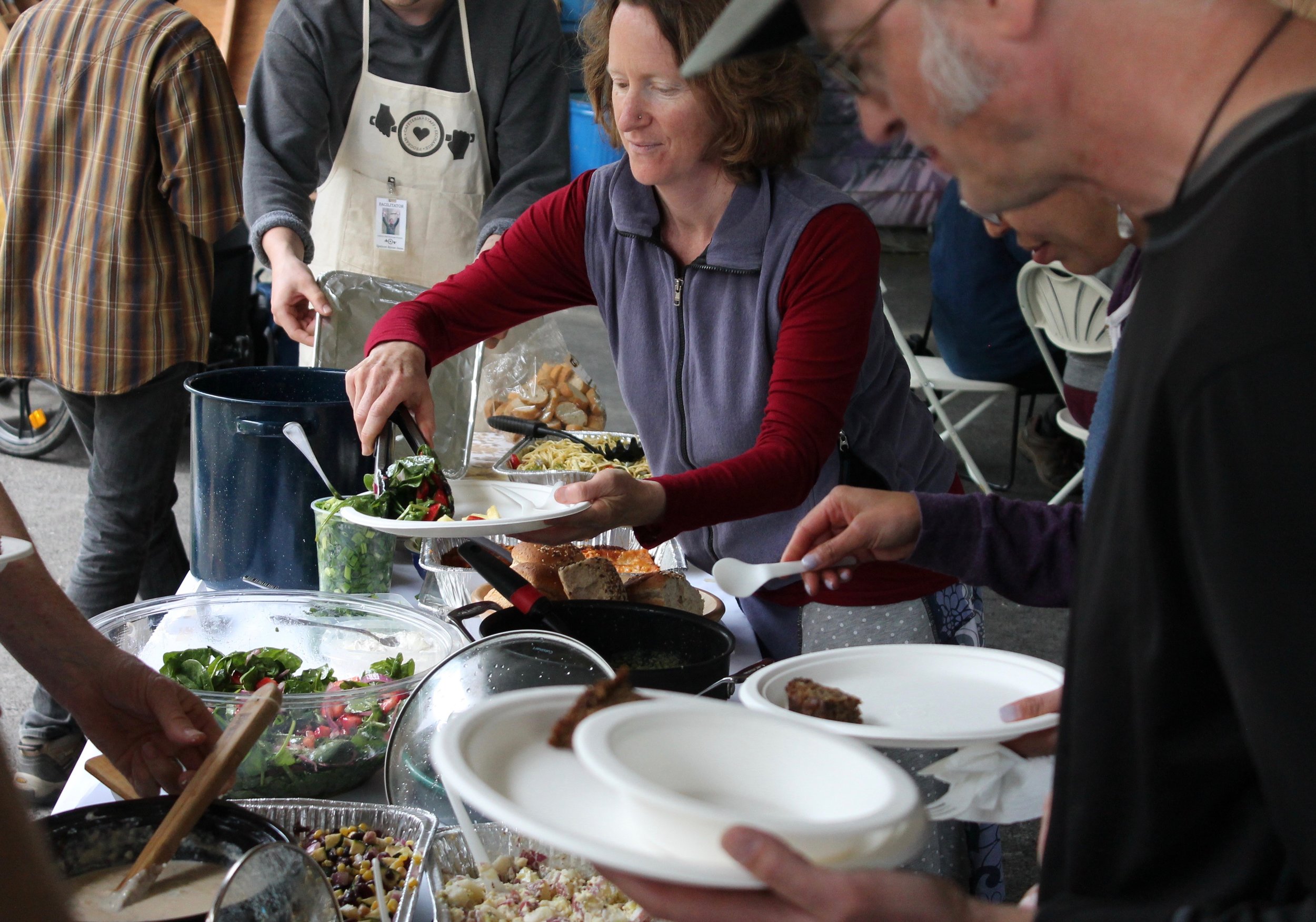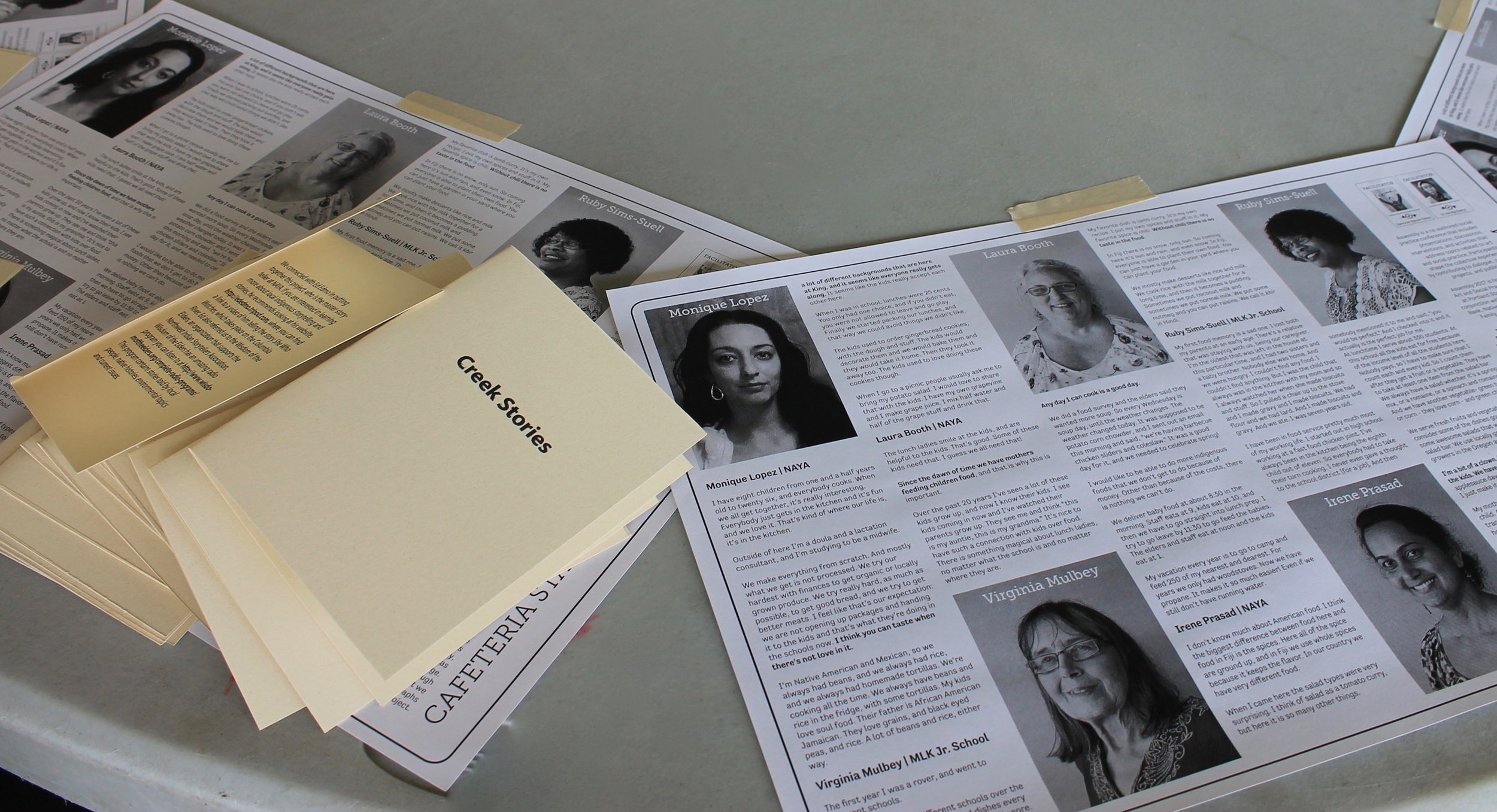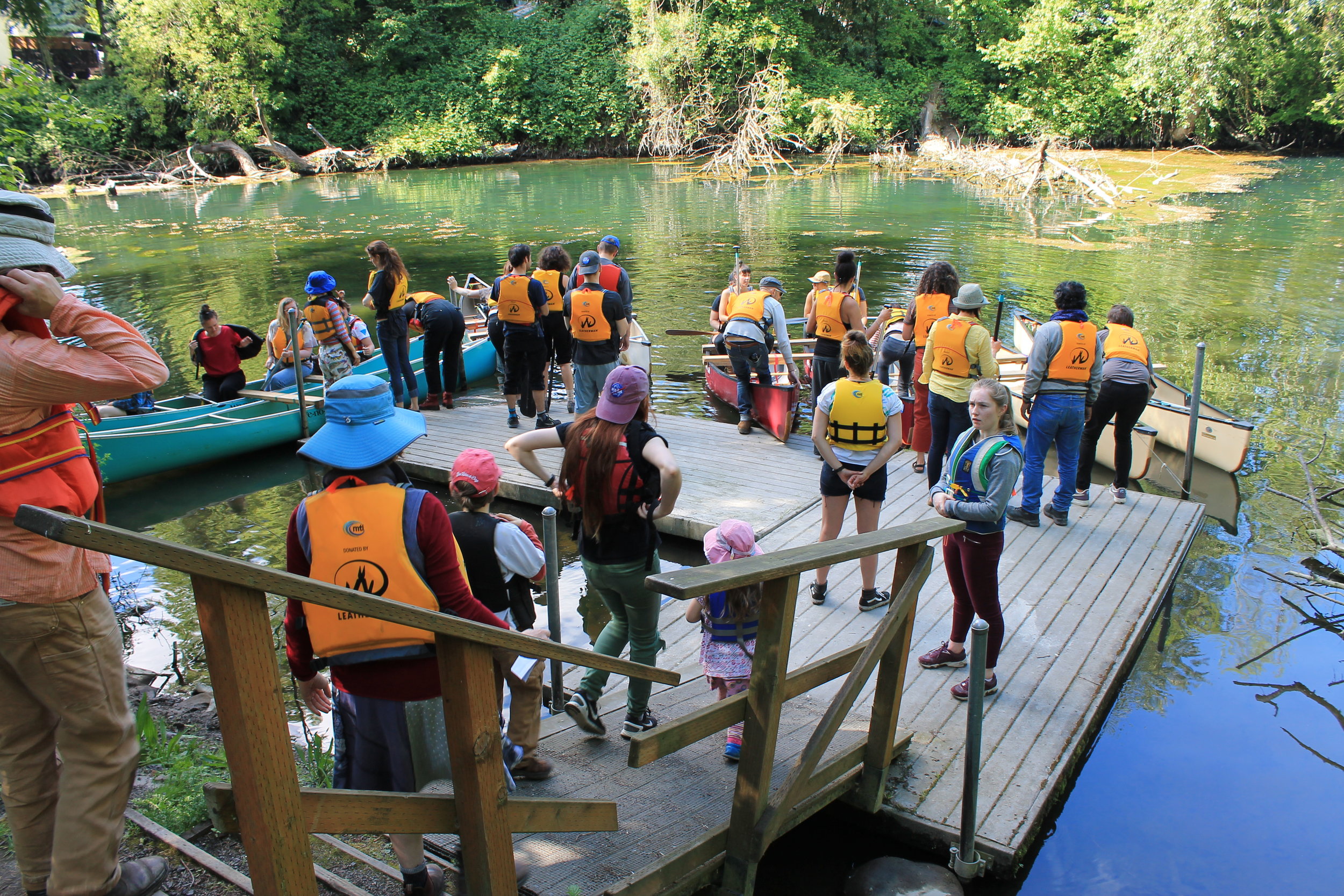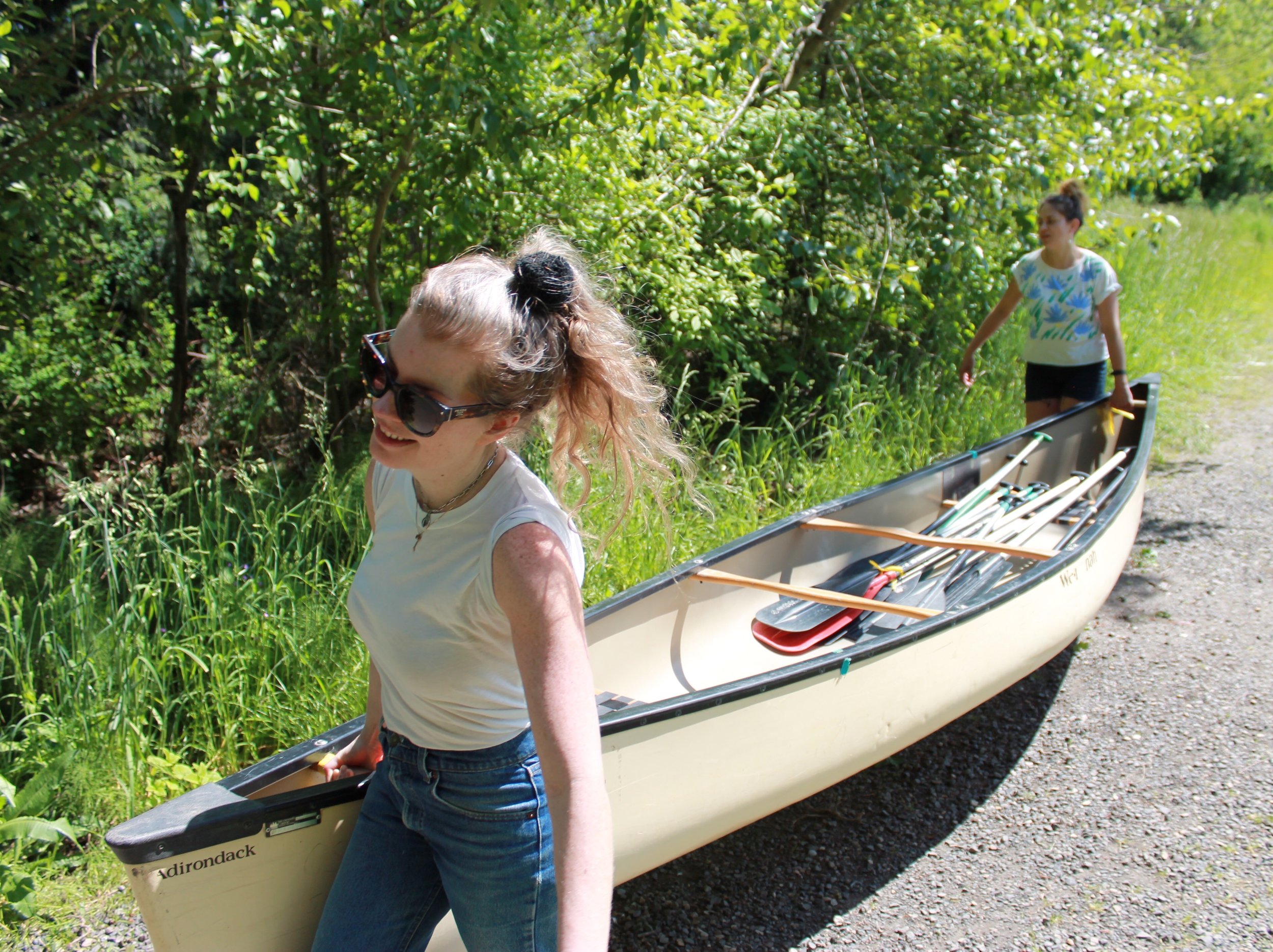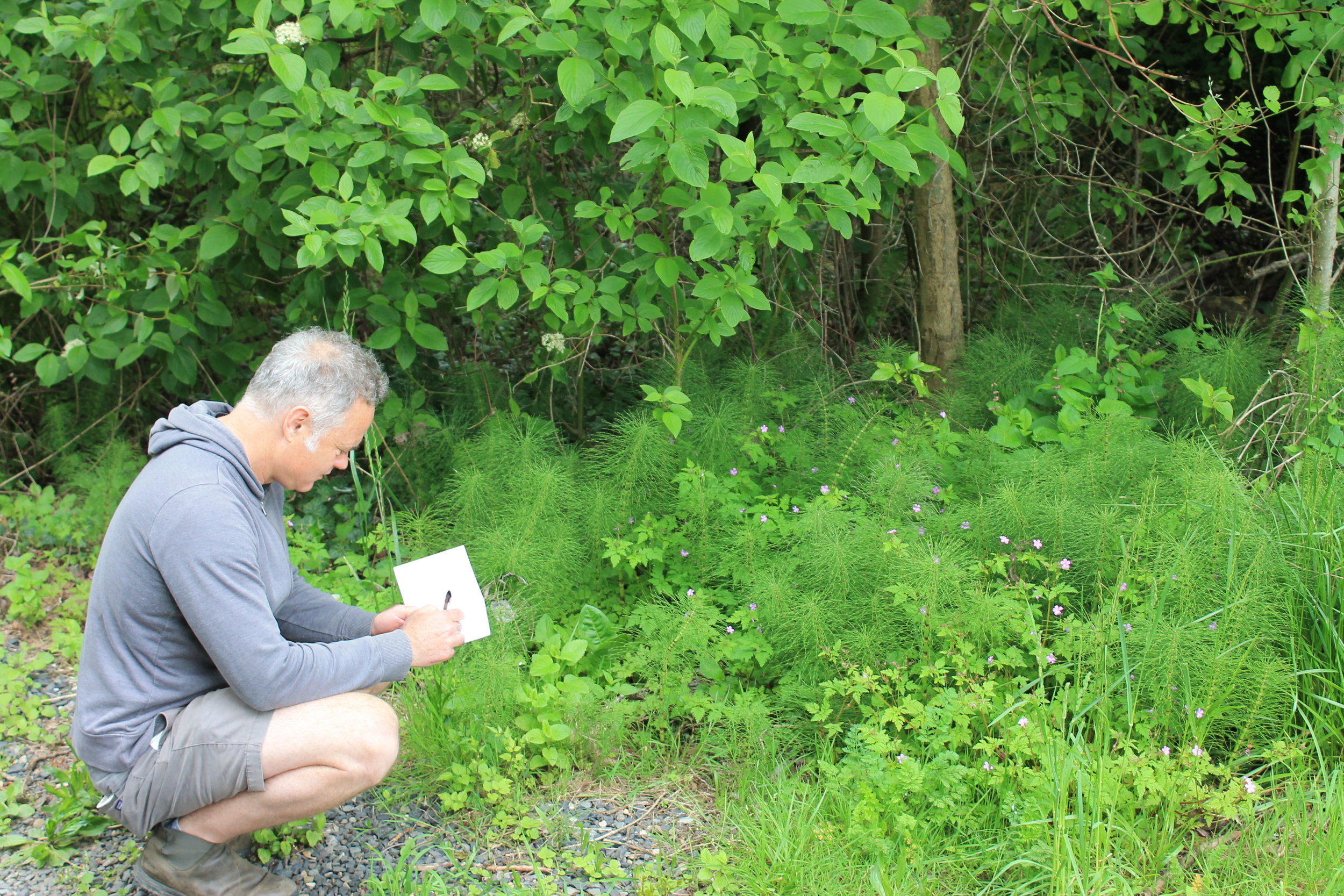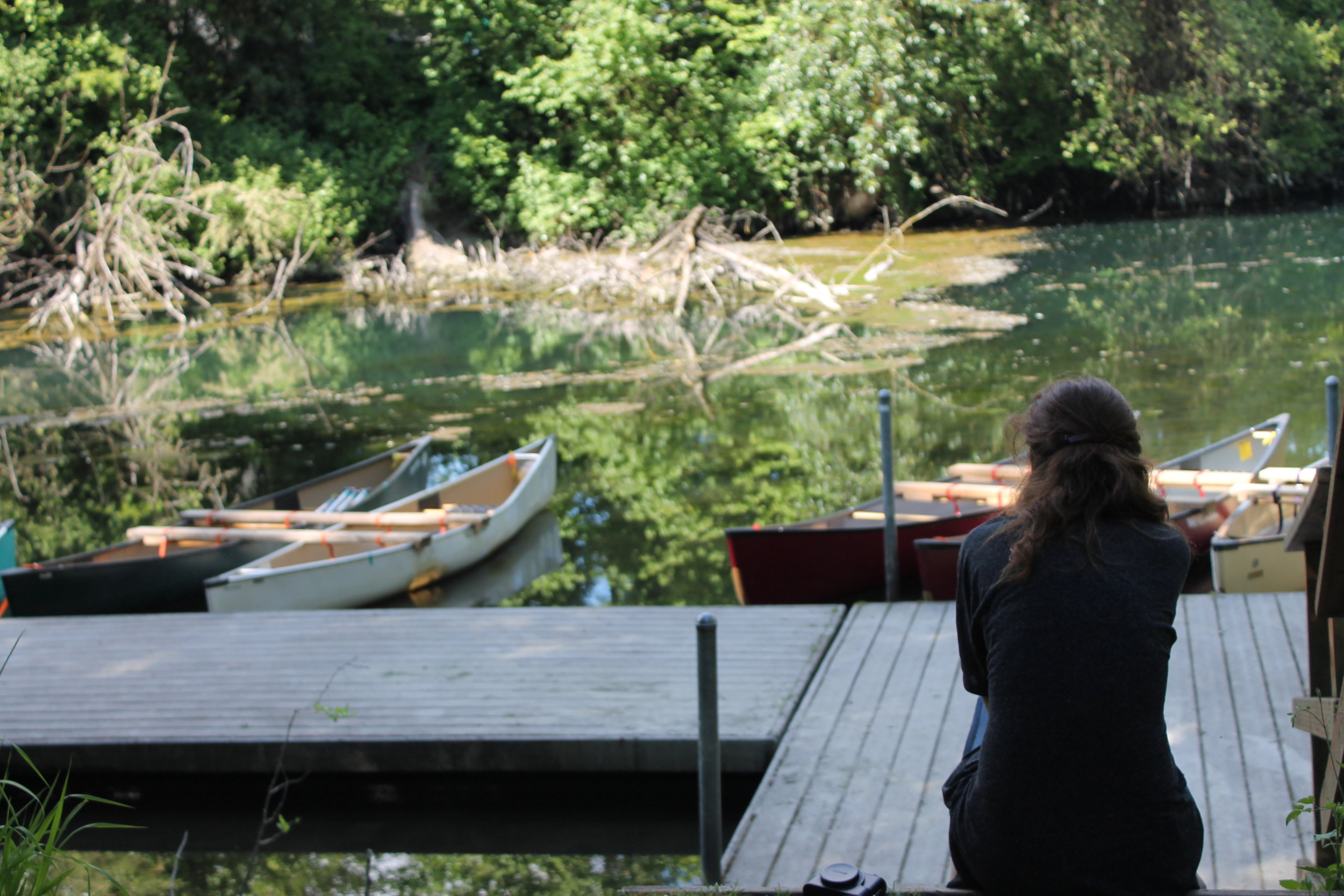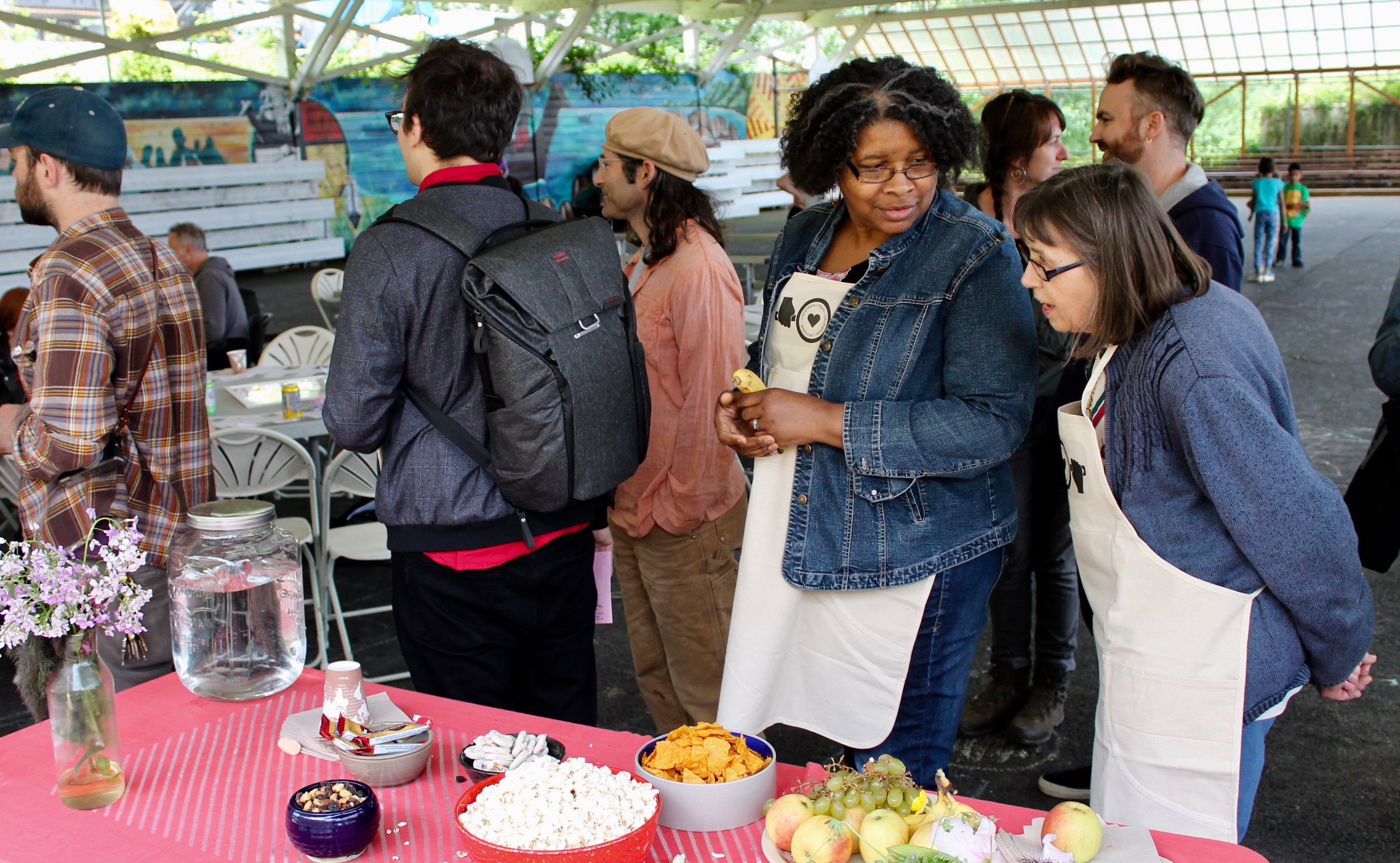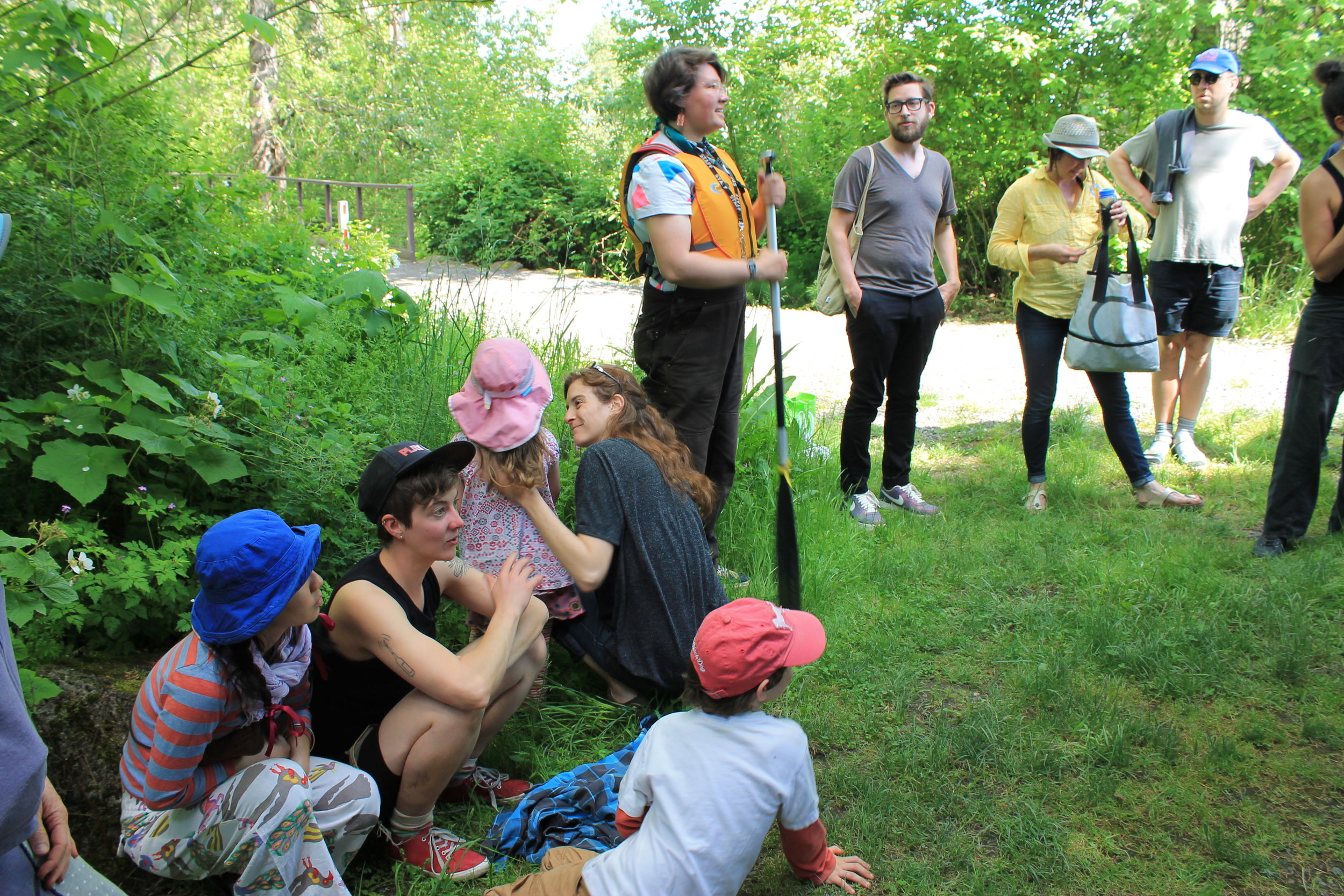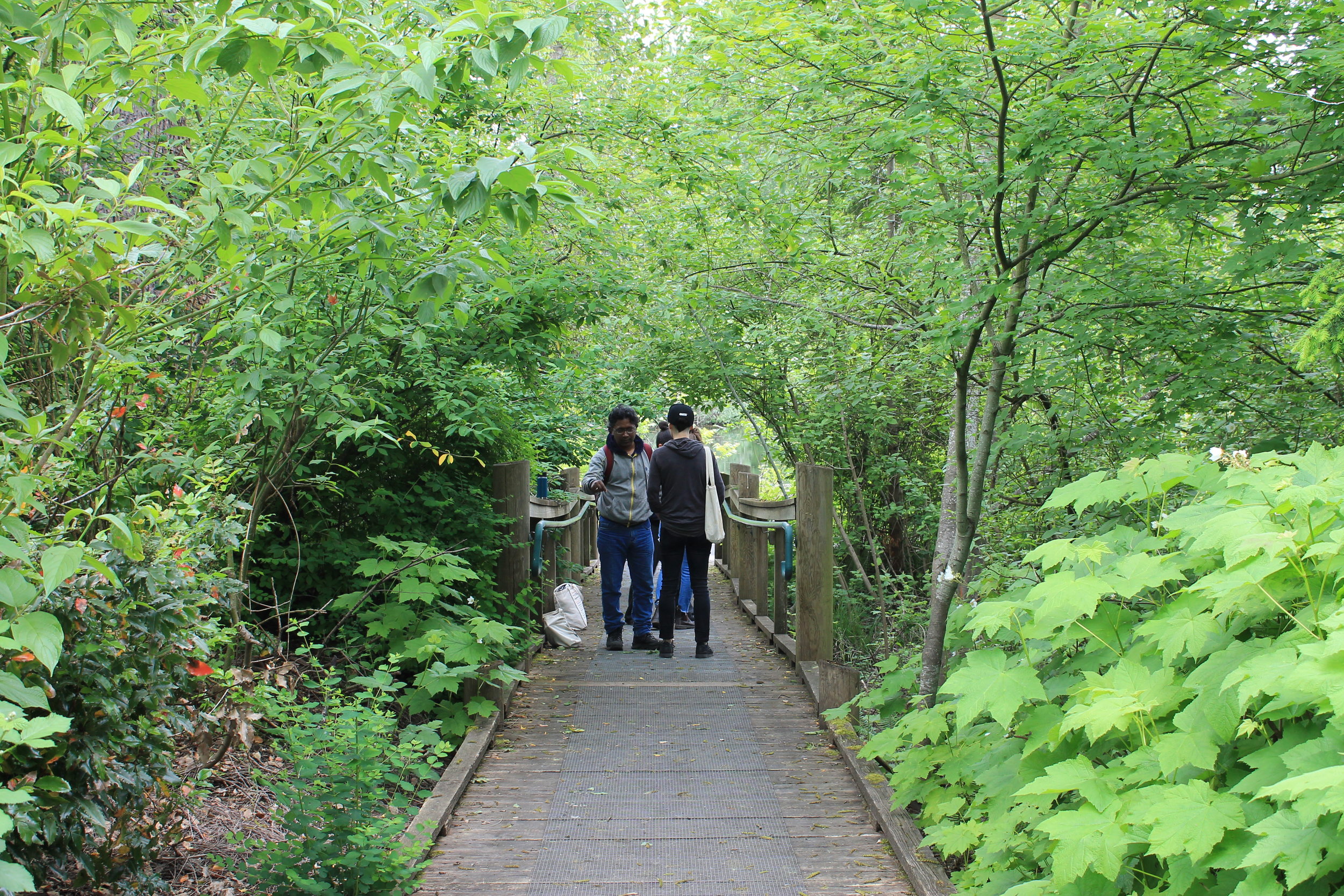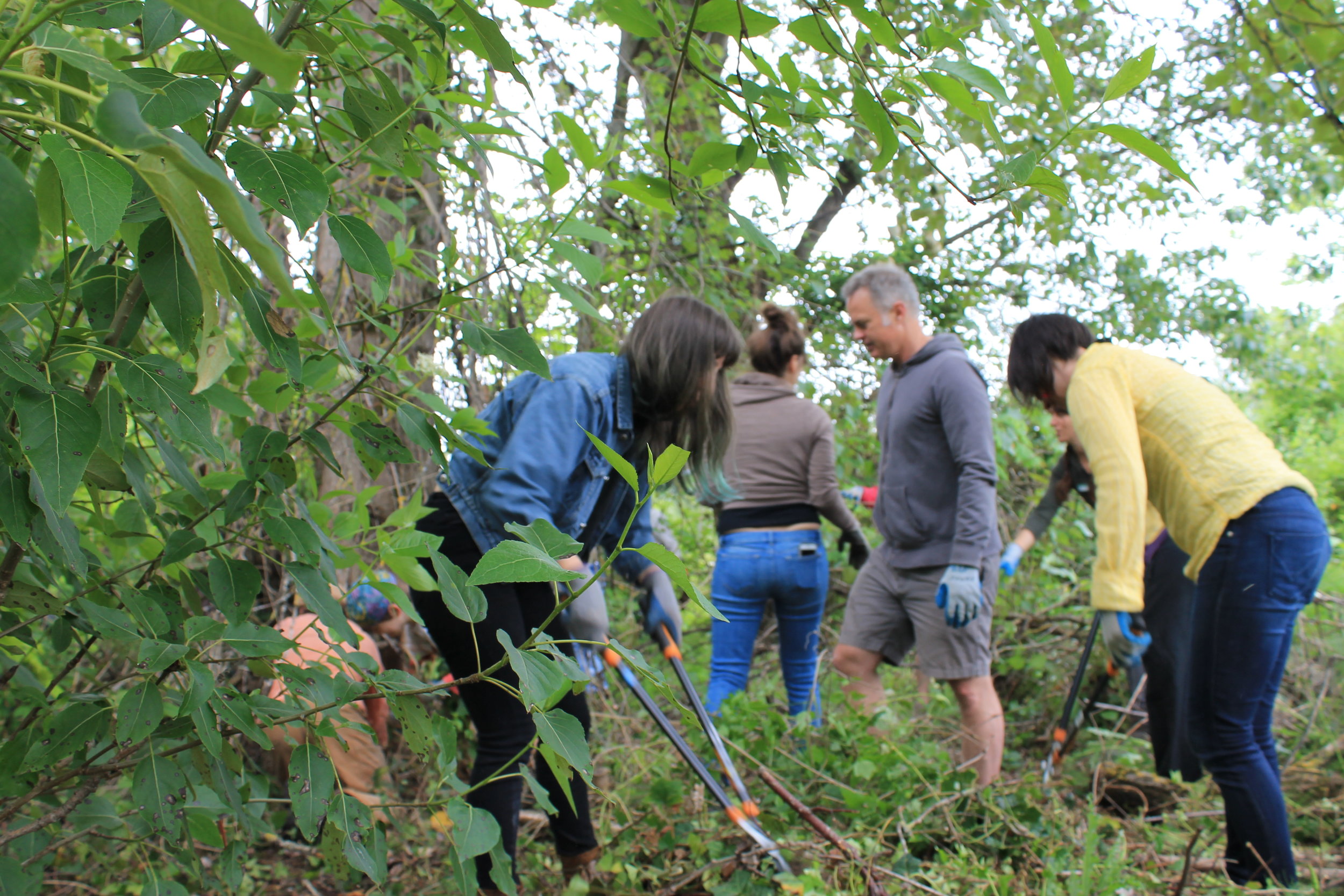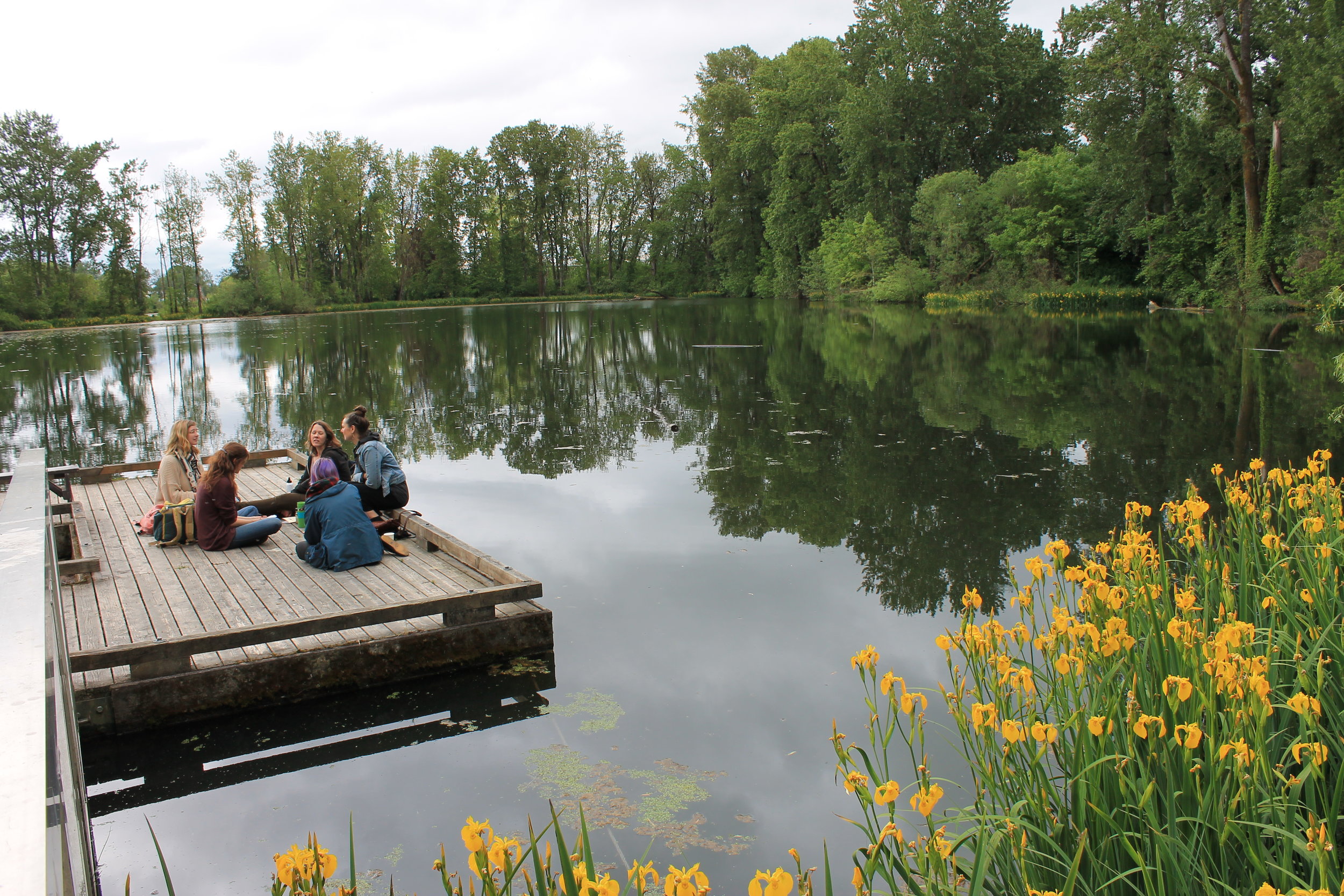SEPTEMBER 30th, 2017 — Columbia Slough Creek College, Part 2
In 2017, Creek College is hosting two symposiums on the Columbia Slough in collaboration with NAYA (Native American Youth and Family Center) and the Columbia Slough Watershed Council.
Our second symposium is Saturday, September 30th, featuring new classes along with and a panel discussion at the end of the day. All events are free and open to the public.
Sign up below for our classes and an opportunity to participate in environmental education and restoration activities through our partnership with Columbia Slough Watershed Council.
Classes will be on-site at the NAYA Family Center, 5135 NE Columbia Boulevard.
Learn more about classes, barters, panelists and schedule for our Sept 30th symposium below.
Note:
Columbia Slough Creek College is open to participants of all ages!
Classes and Projects
traditional plant medicine
Taught by Clay River
9:30–10:30am
A workshop exploring the medicine that surrounds us. Participants will learn about traditional plant knowledge through harvesting from our surroundings and making tea together. Everyone will be able to take some of the harvest home with them.
SIGN UP!
What wants to happen?
Taught by hannah krafcik and emily jones
11:45am–12:45pm
—
How does discomfort with uncertainty inhibit our experience of an environment? How do socialized movement patterns create chasms of separation, foreclosing on the possibilities for our engagement with place, community, and even our own bodies? This movement-based workshop will cultivate uncertainty: What happens if we radically shift our focus? Through sensory walks, movement explorations with eyes closed, and experiments in “attending to” an environment with a redistributed hierarchy of the senses, we will begin to uncover possibilities for instant composition—the emergence of the poetic in a particular place. What wants to happen?
SIGN UP!
memory reservoir: visual poetry & the watershed
taught by catie hannigan
2:00–3:00pm
—
Geographer Yi-Fu Tuan writes:
…space is transformed into place as it acquires definition and meaning… it is by thoughtful reflection that the elusive moments of the past draw near to us inpresent reality and gain a measure of permanence.
(Space and Place: The Perspective of Experience)
Through this lens, this class aims to reflect on how we may associate memories with landscapes and landscapes with memories— personally, collectively, and historically. Specifically, we will engage with the map of the watershed, and how this natural formation may mirror our own internal reservoirs.
A variety of texts will be available; genres ranging from (visual) poetry, philosophy, and science, which explore water and watersheds and what it means to be a human among them. Other materials will be photographs, maps, and of course the site of the Columbia Slough. Through a variety of materials, we will juxtapose human experience with water by writing, drawing, tracing, stenciling, journaling, documenting, playing, etc. and hopefully through art we will transform space into place!
SIGN UP!
AM I HIKER OR AM I FOREST? A THANK YOU PROJECT
Taught by PEG BUTLER
4:15–5:15pm
—
A walk and exploration considering relationships, connections and ecological thinking. What does it take for us to shift our identities enough to think of ourselves as integral parts of the natural world? If we’re not born or educated into that way of thinking, it takes practice. Maybe this form of art is called ecological practice, considering and trying on connectedness and seeing if it sticks. Art sometimes exaggerates, reduces, has humor or depth; all tactics for planting seeds of ideas. And, in art, as in ecological systems, the edge is where the richness is. We’ll consider these topics while interacting with the other natural systems that we meet during a walk around the pond.
After a walk, students will create installations from found objects. The installations will be Thank You Projects in acknowledgement and recognition of the connections that we've made and become aware of during our explorations.
SIGN UP!
Schedule
9am: Opening Ceremony with NAYA
9:30–10:30: Traditional Plant Medicine
10:45–11:30: Restoration Activity
11:45–12:45: What Wants To Happen?
Lunch 1–1:45: Lunch
2:00–3:00: Memory Reservoir: Visual Poetry & The Watershed
3:15–4:00: Restoration Activity
4:15–5:15: Am I Hiker or Am I Forest? A Thank You Project
5:15–6:15: Panel Discussion
Restoration activities
For this session we will be removing invasive species with Portland Parks & Recreation Coordinator Yoko Silk.
Join Portland Parks & Recreation and the Columbia Slough Watershed Council to remove invasive English ivy and blackberry, and help create a learning area for environmental education programs at Whitaker Ponds. Portland Parks & Recreation and the Columbia Slough Watershed Council hosts hundreds of school age youth at Whitaker Ponds throughout the year; creating a new gathering area close to the trail will benefit many classes and groups for years to come. In addition, clearing invasive species encourages native plant regeneration, creates more habitat for wildlife, and improves erosion control and water quality. Gloves and tools will be provided!
Registration
Sign up here for the full day, individual classes, or panel.
For questions, comments, or concerns, contact us here!
PANEL: The Arts and Sustainable Practices

